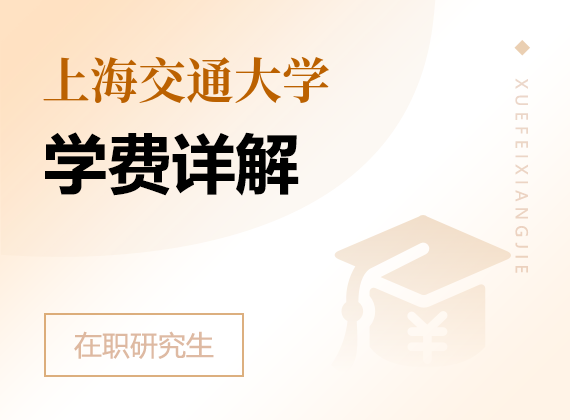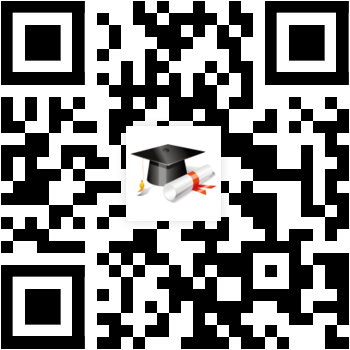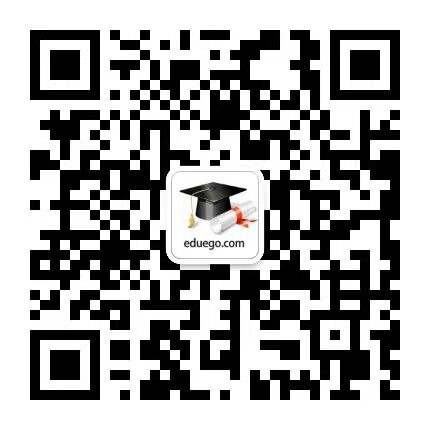2010年GCT英语模拟试题练习-02
来源:在职研究生招生信息网 发布时间:2011-10-24 14:24:42
Part One Vocabulary and Structure
Directions:
In this part there are 20 incomplete sentences, each with four suggested answers. Choose the one you think is the best answer. Mark your choice on the Answer Sheet by drawing with a pencil a short bar across the corresponding letter in the brackets.
1. In order to ______your goals, you must work hard.
A.make
B.achieve
C.require
D.develop
2. As they can’t afford to let the situation get worse, they will take some necessary _____.
A.decisions
B.sides
C.directions
D.steps
3. It is clear that there will be little chance that mankind would ______ a nuclear war.
A.retain
B.maintain
C.endure
D.survive
4. it’s _______that they would spend four hours weeding the garden.
A.estimated
B.exceeded
C.escaped
D.excluded
5. The flood left a large ______of mud in the street.
A.deposit
B.heap
C.pile
D.crust
6. It is because she is too inexperienced _____ she does not know how to deal with the situation.
A.so
B.that
C.so that
D.which
7. Scholars maintain that social development can easily _____ language changes.
A.bring up
B.bring about
C.bring out
D.bring forward
8. _____ forceful were his arguments that even his enemies became his supporters.
A.Very
B.Too
C.Such
D.So
9. _______, I would have told him the answer.
A.Had it been possible
B.If it were possible
C.If it was possible
D.Possible it was
10. Some materials will conduct heat better than others and these materials are said ______good conductors.
A.to be
B.to being
C.having been
D.being
Directions:
In this part there are 4 passages followed by questions or unfinished statements, each with four suggested answers. Choose the one you think is the best answer. Mark your choice on the Answer Sheet by drawing with a pencil a short bar across the corresponding letter in the brackets.
Questions 11-15 are based on the following passage:
Do you forget to turn off the lights and heaters when you go out of a room? In 2040 it will not matter. They will turn themselves off—and on again when you return. A sensor will detect the presence of a human and turn the systems on, and when the humans leave it will turn them off again.
The sensors will work through the central home computer, and they will do much more than just turn the fires and lights on and off for you. They will detect faulty electrical appliances, isolate them so that they cannot harm anyone, and then warn
you that they need repair. They will detect fire and if you are out of the house, the computer will call the firemen. It will also call the police should the sensors detect an intruder. You will open the door using your personal card—the one you use for shopping—maybe using a number known only to you.
11. The author intends to tell the readers that in year 2040 _____.
A.they will live without lights and heaters
B.they will use much more lights and heaters
C.lights and heaters will be on and off automatically
D.there will be no switches of lights and heaters
12. According to the passage, which of the following statements is true?
A.People often forget to turn off the lights and heaters.
B.People will have a servant to work for them in 2040.
C.People are afraid of year 2040.
D.People will save much trouble with the help of advanced technology.
13. According to the author, in 2040, new technology _____ .
A.will turn everything into sensors
B.will free us from the keys we use today
C.will make the locks out of date
D.will eliminate crimes
D.will have more fun at home
14. Thanks to computers, in 2040 people _____ .
A.will replace TV with computers
B.will have much fewer fire accidents
C.will be controlled by computers
15. The best title for the passage might be _____ .
A.Life in Year 2040
B.Sensors and Computers
C.The Development of Science and Technology
D.Lights and Heaters in the Year 2040
Questions 16-20 are based on the following passage:
Tokyo is one of the largest cities in the world. It is also one of the world’s most modern cities. Twice this century, the city was destroyed and rebuilt. In 1923 a major earthquake stuck the city. Thousands of people were killed and millions were left homeless as buildings collapsed and fires broke out throughout Tokyo. It took seven years to rebuild the city. During World War II, Tokyo remaining was destroyed once again. As a result of these disasters, there is nothing of old Tokyo remaining in the downtown area.
After the war, the people of Tokyo began to rebuild their city. Buildings went up at a fantastic rate, and between 1945 and 1960, the city’s population more than doubled. As a result of this rapid development, however, many problems have arisen.
Housing shortage, pollution, and waste disposal have presented serious challenges to the city, but the government has begun several programs to solve those problems.
16. Which of the following is not mentioned in the passage?
A.Tokyo is a historic city.
B.Tokyo is a highly modernized city.
C.Tokyo is a world famous seaport.
D.Tokyo is a large city.
17. Which of the following is(are) the major event(s) happened to Tokyo this century?
A.The population of Tokyo doubled.
B.It was twice destroyed by nature disasters and was twice rebuilt.
C.Serious social problems emerged.
D.It was ruined by an earthquake and a war, but was twice rebuilt.
18. Which of the following problems is NOT mentioned in the passage?
A.Housing problem
B.Waste disposal
C.Heavy traffic
D.Pollution
19. ______ brought so many problems to Tokyo today.
A.The severe earthquake
B.The foreign occupation after the war
C.The population explosion between 1945 and 1960
D.The rapid development of the city after the war
20. Which of the following is the main idea of the passage?
A.A modern city is better than an old city
B.Tokyo has developed rapidly but it is faced with new problems.
C.People of all nations helped develop Tokyo.
D.The government is worried about the problem.
Questions 21-25 are based on the following passage:
As you explore music, you will find much that is familiar to you. You will find music which tells of interesting places and exciting things to do. You will find music which expresses feelings that are often of your own. Music is not only an expression of people’s feelings but also things they do. As you explore, you will find music of people at work, and in worship. You will find music expresses love of country, love of nature, and love of home.
Music is also an expression of the composer. As an artist the composer expresses his own musical ideas. He studies the materials of music and discovers ways of using them. He looks for new kinds of musical expression.
Music can suggest activities and feelings, which we all share. We can enjoy playing and singing music, dancing and listening to music of the people and the artists of different times and places.
21. The title of this passage is ______.
A.Let’s Enjoy Singing and Dancing
B.Let’s Explore Music
C.Music-An Expression of Composers
D.Music-A Suggestion Feelings
22. According to the first paragraph, music has all the following functions except ______.
A.talking about interesting places to go
B.telling of exciting things to do
C.expressing similar feelings
D.helping people love music
23. The main idea of the second paragraph is that ______.
A.music is mainly of country, nature and home
B.if we love music, we will love the country, nature and home
C.people may listen to music at work or at play
D.music can express how people live, work and think
24. Which of the following belong to the category of artists?
A.people in nature
B.music listeners
C.composers
D.people of other places and times
25. The last paragraph observes that music makes it possible ______.
A.for people to express activities and feeling at the same time
B.to bring understanding between people of different times and places
C.that people can enjoy playing and singing music, dancing and listening to the music at the same time
D.that people of different times and places can get together
Questions 26-30 are based on the following passage:
China is gradually reducing control on its wholesale and retail sectors and other marketing channels within two to five years after its WTO entry. At present, foreign capital invested in China’s commercial enterprises mainly flows to large supermarkets, malls and department stores. Economists believe that china’s retail markets have been a big “cake” favored by domestic and foreign business people. Foreign-funded retail enterprises in China have already broken the original market layout and constantly expand their businesses. They have attracted Chinese consumers with unique products and services, and their information management, chain operation and unified distribution have resulted in fierce competition in the retail sector. Large foreign-funded retail enterprises, with chain stores as their primary business model, can bring their advantages of scale into full play in terms of purchasing goods, setting prices and reducing costs. This is bound to have a negative impact on China’s retail enterprises run on small scale or with poor management.
26. According to the first sentence, China _____.
A.has started to reduce control on marketing channels
B.has promised to reduce control on marketing channels
C.has strengthen its control on marketing channels
D.is rapidly decrease its control on marketing channels
27. Which of the following statements is true?
A.China will reduce control on its wholesale and retail sectors immediately.
B.China’s retail markets are favored not only by foreign investors but also by domestic business.
C.Foreign investors couldn’t enter China’s retail market right now.
D.At present, foreign capital flows to manufacturing industries.
28. Foreign enterprises are able to expand their business in China, mainly because they _____.
A.could provide goods of various kinds
B.have better supply, management and service
C.sell imported goods and are expanding businesses
D.have foreign funds
29. The author implies that the China’s retail enterprises _____.
A.should continue their old business practices
B.will have strong rivals
C.should try to improve their management and scale
D.should withdraw from this fierce competition
30.Which of the following is the best title for the passage?
A.China’s Economy after WTO Entry
B.Retail Market Competition in China
C.Foreign Investment in China
D.Negative Impact of Economy
Part Three Cloze Test
Directions:
For each blank in the following passage, choose the best answer from the choices given below. Mark your answer on the Answer Sheet by drawing with a pencil a short bar across the corresponding letter in the brackets.
A person who believes that he is incapable will not make a real effort, because he feels that it would be useless. He won’t go at a job with the confidence __31__ for success. He is therefore __32__ to fail, and the failure will strengthen his belief in his incompetence.
Alfred Adler, a famous doctor, had an experience __33__ illustrates this. When he was a small boy he was poor at arithmetic. His teacher got the idea that he had no ability in arithmetic, and told his parents what she thought in order that they would
not expect __34__ much of him. __35__ this way, they too developed the idea, “Isn’t it too bad that Alfred can’t do arithmetic?” He accepted their mistaken estimate of his ability, felt that it was __36__ to try, and was very poor at arithmetic, just as they expected.
One day Adler succeeded in solving a problem which __37__ of the other students had been able to solve. This gave him confidence. He __38__ the idea that he couldn’t do arithmetic and was determined to show them that he could. His new
__39__ confidence stimulated him to go at arithmetic problems with a new spirit. He now worked with interest, __40__, and purpose, and he soon became extraordinarily good at arithmetic.
31.
A.well
B.necessary
C.in
D.good
32.
A.possible
B.possibly
C.likely
D.like
33.
A.to
B.when
C.when
D.which
34.
A.too
B.very
C.so
D.that
35.
A.On
B.In
C.By
D.From
36.
A.important
B.useful
C.useless
D.thought
37.
A.any
B.none
C.each
D.necessary
38.
A.accepted
B.developed
C.rejected
D.no
39.
A.found
B.finding
C.find
D.founded
40.
A.love
B.feelings
C.determination
D.solution
Part Four Dialogue Completion
Directions:
There are 10 short incomplete dialogues between two speakers, each followed by four choices marked A,B,C,and D. Choose the answer that appropriately suits the conversational context and best completes the dialogue. Mark your answer on the answer sheet by drawing with a pencil a short bar across the corresponding letter in the brackets.
41. Johnny: Dear Tommy, why don’t you come on holiday with us?
Tommy: ______
A.That’s very kind of you. I’d love to.
B.How dare you invite me? I won’t go.
C.Yeah, thanks anyway.
D.Whether I’ll go or not is not your business, ok?
42. Doctor: _______
Patient: I’ve caught a bad cold and got a sour throat.
A.Do you have anything to declare, sir?
B.Good morning. May I help you?
C.How have you been getting along recently?
D.What seems to be the problem?
43. Wilson: Hello. May I speak to Peter?
Peter: ______
A.Sorry, the number is engaged. Will you hold?
B.Yes, speaking.
C.Hello. Who’re you, please?
D.Hello. Thank you for calling.
44. A: Firstly, allow me to introduce myself. My name is John Brown, manager of the company.
B: ______
A.You must be mistaken. I don’t know you at all.
B.Hello, Brown! I haven’t seen you for ages.
C.How do you do, Mr. Brown? Very happy to see you.
D.Hi, John! Welcome to China.
45. Dad: Could you run over to the store right away? We need a few things.
Son: _____
A.Yes, I could. I want to play football.
B.For me, running is not a problem. I’d like to do exercises.
C.Yes, storing a few things away is quite necessary, right?
D.All right. What do you want me to get?
46. Waiter: Welcome, sir. May I help you?
Customer: ______
A.Thank you. I’ll have fried tofu and stir-fried cauliflower.
B.Yes, please. I’d like a hamburger and a chocolate shake.
C.Sorry. I don’t need your help, thank you.
D.If you want to help me, I’ll be glad to accept it.
47. Pupil: I apologize for being late this morning. My alarm clock didn’t ring.
Teacher: ______
A.That’s all right. These things often happen.
B.Would you please forgive me? I never accept any apologies at all.
C.Thank you. You’re really too kind apologizing to me.
D.Never mind. You don’t have to be so polite.
48. Son: Mom, may I play my computer game for an hour or two?
Mom: _______
A.Your teacher tells me that you should study harder.
B.I’ve said before that the game takes too long.
C.Well, ah…. You’re absolutely right to ask.
D.Sorry, Dad’s using the computer now.
49. A: What a surprise! You changed your hair style.
B: Yes, and another surprise. I’m going to get married next Saturday.
A: ______
A.Oh, sorry, I nearly forgot that.
B.Really? Congratulations!
C.How about another time? I’ll be busy then.
D.That’s OK. Saturday is the most suitable day for any marriage.
50. Guest: Oh, it’s ten o’clock. I’d better go now.
Host: ______
A.OK. Please walk slowly.
B.Why do you want to go now? Don’t you want to stay?
C.Won’t you stay for another cup of coffee?
D.Yeah, it’s really late. Why not immediately?
下一篇: 2010年GCT英语模拟试题练习-01





















